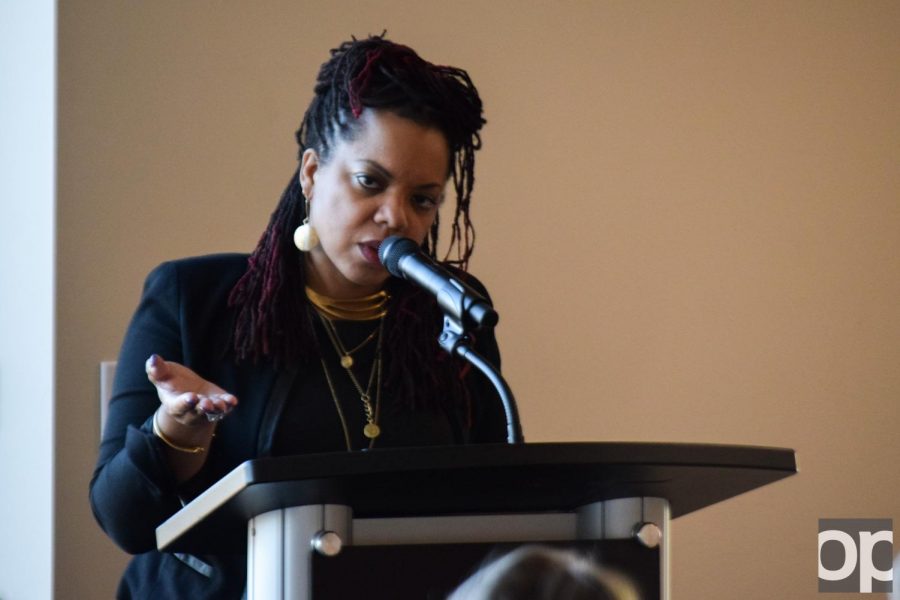Poet Airea Matthews visits in honor of the annual Maurice Brown Poetry Reading
On Thursday, Oct. 18, 2018, from 5-6:30 p.m. in Oakland Center rooms 157-158, the Oakland University English department hosted the annual Maurice Brown Poetry Reading. The series was named for the beloved professor who taught at OU between 1969-1985.
The poet honored this year was Airea Matthews, author of “Simulacra,” the 2016 winner of the Yale Series of Younger Poets Award, and a 2015 Kresge Literary Arts and Cave Canem fellow.
Creative writing professor Alison Powell organized the event, reporting how they selected Matthews to read her work.
“Our faculty member professor Jeffrey Chapman was a Kresge Fellowship recipient, and he recommended I check out her work,” she said. “I did so and thought the book was wonderful, so I was eager to have her here.”
Powell hopes the audience took away a number of things, but most of all she hopes they walked away knowing that poetry doesn’t have to rhyme or be on expected topics.
“You can use Twitter language, jokes, even playwriting in a book of poems, all that matters is your technique and focus,” she said.
Before the event, Matthews gave a more intimate craft talk entitled “The Four Temperaments in The Apollonian Poem.” The talk was based on poet Gregory Orr’s essay “The Four Temperaments.” It was held from 12-12:45 p.m. in the Lake Michigan Room in the OC.
In this craft talk she invited those in attendance to evaluate their style of writing based on four characteristics: story, structure, music and imagination belonging to two forms of poetry.
Story and structure belong to the the apollonian approach, while music and imagination are more dionysian.
“Apollonian poems give you a sense of a door closing at the end, and when you end a dionysian poem you think to yourself, ‘What just happened?’” Matthews said. “I, myself am largely dionysian, but my drive has always been to know the opposite of who I am.”
Matthews stated that her effort to understand George Orr’s essay has been very insightful to her, because it gave her the tools to close a poem in the way an apollonian poem does.
She also asked the audience to evaluate a poem by well known Michigan-native poet Robert Hayden, entitled, “Those Winter Sundays.” She opened up a conversation about the theme of the poem as well as the structure.
“It didn’t hit me until I read this recently, that this poem is a picture of unrequited love,” Matthews said. “It’s not romantic love but it is unrequited familial love.”
She tied in how his approach to writing this poem was largely based off of who he was and the things he went through in his life. She talked about how Hayden was born in a neighborhood of Detroit called “Black Bottom”, was left as a child, and taken in and raised by another family.
The craft talk was presented as an interesting way for writers and non-writers alike to understand who they are in terms of thought processing both through Hayden’s poem and through getting to know Matthews’ work.









